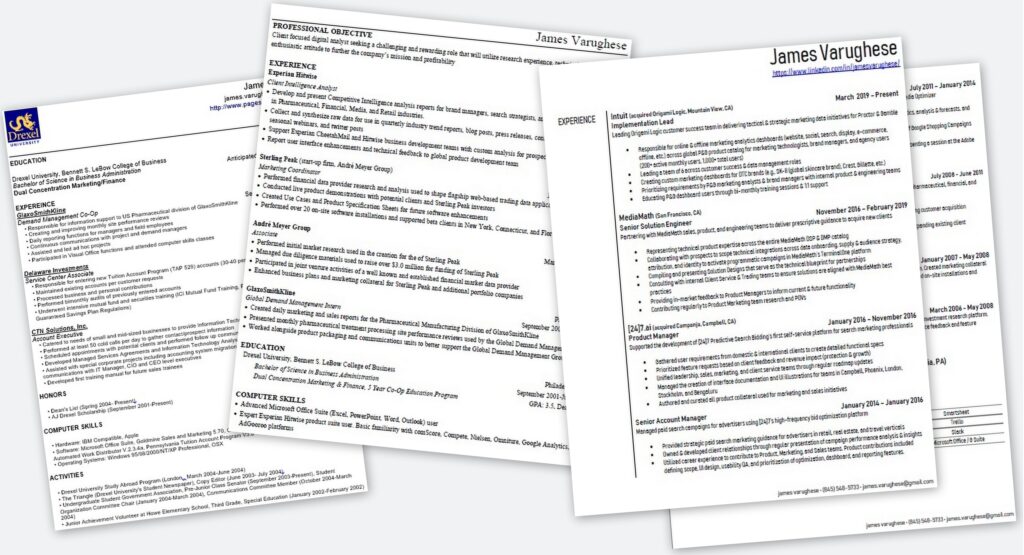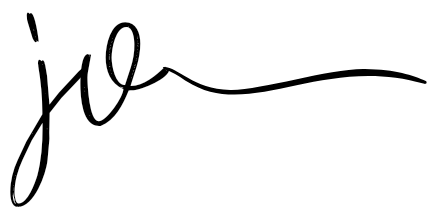Ah, the resume. A collection of carefully crafted bullet points that sum up your professional existence in the hopes of convincing someone that you’re worthy of a role. How important is this combination of words? Does it truly encapsulate what you’ve learned? What you’ve accomplished? Who you’ll be 5-10 years in the future?
I’m being a bit dramatic for two reasons…
- To keep you reading
- As an attempt to put you at ease when it comes to writing your resume
Something to keep in mind, the resume is a part of your arsenal, not the arsenal itself. It’s where you’ll start the story of you on paper/PDF. When you secure a phone screen/follow up interview, it’ll then serve as the foundation to build on that story to highlight your value to the role you’re applying to.
I’ll focus on the following themes in this article…
- Your resume is a living document, don’t forget to feed it every now and then
- Your resume is an opportunity to stick out among the crowd, don’t be afraid to show off
- Your resume is a reference to what you’ve accomplished in the past, but not a limit for what you’ll do in the future
I was able to dig up 3 resumes (I used the following query in my gmail to find them from:me resume has:attachment) and wanted to share them before getting started.

I’ve found a style that fits my personal character, but more importantly, is functional when it comes to illustrating my value. The resume to the far left was prepared close to graduation from Drexel University in 2006 and is heavily focused on my Co-Op experiences and extra curricular activities. The resume in the middle was used in 2011 prior to moving to California. It built the story of an ambitious and data driven 20-something who was ready to take the next leap in his career. The most recent resume (which I admit hasn’t been updated since starting my most recent role) is two pages and contains my journey through multiple roles at different organizations, all while succinctly starting my individual contributions and responsibilities.
Resumes are living documents
It’s best to update your resume regularly, let’s say once every 6-9 months. Here are the reasons why…
- It’s easier to pull together recent accomplishments
- Time moves fast, especially as your career progresses. That one project that kept you up for weeks and was the bane of your existence will become a fond memory in no time. Keeping a running list of the accomplishments that defined your role is a good way to define who you are as a contributor, teammate, leader, etc.
- You can recall situations to refer back to during interviews
- Resumes help interviewers get a quick look at your career and understand your potential. Having stories that illustrate how you excelled in the face of adversity, delivered value to the organization, grew as a professional & as an individual, etc. at your fingertips will only make it clearer how prepared you were for winning the role that you’re interviewing for.
- Cycle out new skills for older ones that may not be as polished or relevant
- Skills mature on the job. Sure, you can learn a lot in school, and I’m in no way discounting educational programs, but there’s nothing like delivering insights to shape strategic decisions, or managing campaigns to surpass prior period performance, or designing products that will enhance experiences and delight customers. What you pick up during these on-the-job learning opportunities, including the tools (software, hardware, processes, etc.), and being able to clearly track back to how you learned/applied what you learned will prove to interviewers that you’re weren’t being smart in the moment, but will apply your intelligence to the role your interviewing for.
Humbly showing off
In some cultures it’s said that “the nail that sticks out gets hammered”. However, when it comes to resumes, I’m a firm believer that earned accomplishments should be presented in a way that makes the reader confident in your ability to bring value to the role you’re applying to.
Here are some tips on how to do this…
- Be clear on what you were a part of, and what you were responsible for. Take a look at the DACI (Driver, Approver, Contributor, Informed) model and where you fit in your prior roles.
- If you’re lacking situations where you were the Driver then be clear on what qualities you possess that great leaders exude. Follow up one these in the interview with how you would employ tactics in the role you’re applying for based on what you’ve seen yield successful results.
- Always quantify success, but make it relative to the business impact. For example, “Closed $2mm in new business, representing 80% lift in sales YoY”.
- If you’re unable to do this, then focus on your contribution to these inputs and follow them up with how you’d like to develop your impact during the interview.
- Prove your resourcefulness by illustrating how you’re able to create connections across the organization. This is one of the things that I believe has set me apart in my career, and is driven by my personality as a social butterfly. Getting a full picture of an organization, how teams and individuals contribute to the mission, and how you can use this information to be more productive/informed/efficient/etc. will only serve you well.
- If you’re lacking in this, well, it’s not the end of the world, but personally I feel this in my bones as something I have to do. If it’s really not your bag, well I’m not gonna tell you that you can’t succeed without it, but I’m a firm believer in the saying, “if you want to go fast, go alone, if you want to go far, go together”.
Where do we go now?
I like to think that I have a pretty interesting and successful career. No, I’m not holding myself to the caliber of a Fortune 40 Under 40, but I’m comparing myself to, well myself. As I wrote in the first Giving Good post, I have held many jobs over many years. So many hats worn, and yet, there are some hats out there that I’m dying to try on, and some hats that I don’t even know about. This is where having a good network of peers and leaders comes in handy. Emulating the behaviors and gathering the skills of those you look up to because of their experience, current success, and future trajectory is my favorite way of envisioning my future success. This is not copying someone’s career, but rather taking the best parts of multiple paths, peppering it in with what you care about and where you want to go, then acting on it at your current role, and eventually using it as a guide for what you want in your future role.
I hope you’ve enjoyed the post. I’ve been thinking about holding resume critiques and would be happy to chat if you’d like to bounce some ideas off of me. Hit me up on LinkedIn if you’d like to discuss more.
Next Up….Preparing & Crushing Interviews
